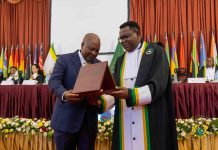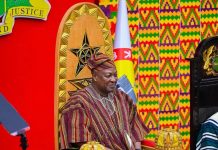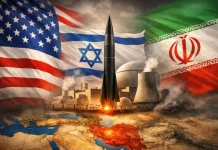Author Samuel Shay || President of Gulf Technologies Systems (GTS)
No country is measured by its achievements, and no leader is measured by his deeds. But citizens in brotherhood and love for others:
In our quest to assess the success and worth of a nation, we often find ourselves entangled in a web of achievements and deeds. We tend to measure countries by their economic growth, technological advancements, and political accomplishments. Similarly, leaders are evaluated based on their actions, policies, and tangible outcomes.
However, a deeper reflection prompts us to question whether these conventional yardsticks truly encapsulate the essence of a nation and its leaders. In this philosophical exploration, I propose an alternative perspective: that the true measure of a country lies not in its achievements, nor in the deeds of its leaders, but rather in the spirit of brotherhood and love for others that permeates its citizenry.
The Fallacy of Achievement-centric Measurements
Human history is replete with examples of countries that have achieved remarkable feats and yet failed to nurture a sense of unity and solidarity among their citizens. Grandiose infrastructures, economic prosperity, and scientific advancements may dazzle the eye, but they often veil underlying social issues and inequalities.
To solely measure a nation’s worth by its achievements is to disregard the fabric of human connections and the well-being of its people. A nation devoid of compassion and fraternity risks becoming a hollow entity, devoid of true meaning and purpose.
The Limitations of Deed-oriented Leadership Evaluation
Leadership is often equated with actions and accomplishments. However, evaluating leaders solely based on their deeds overlooks the qualities that inspire and motivate citizens. A leader’s impact extends beyond the immediate outcomes of their actions. True leadership is rooted in empathy, integrity, and the ability to unite and uplift communities. A leader’s character, their ability to foster a culture of inclusivity, and their dedication to the well-being of their fellow citizens are the true markers of their effectiveness. By shifting the focus from deeds to the ethos of leadership, we recognize the transformative power of compassion and love.
The Brotherhood of Citizens and Love for Others
At the heart of a nation’s strength lies the unity and love shared among its citizens. Brotherhood is understood as a bond that transcends divisions and embraces the common humanity, fostering social harmony and collective progress. When citizens come together in a spirit of empathy, compassion, and mutual support, they create a resilient society capable of weathering storms and confronting challenges. Love for others expands the boundaries of self-interest, fostering a society where the welfare of all is valued and protected. It is in this shared affection and concern for one another that the true measure of a nation can be found.
While achievements and deeds may capture attention and headlines, they alone do not define the essence of a nation. The true measure lies in the quality of relationships, the strength of unity, and the compassion that binds citizens together.
By embracing brotherhood and cultivating love for others, a nation transcends the narrow confines of material success and embarks on a transformative journey towards a society rooted in empathy, fairness, and shared well-being.
Only by acknowledging the pivotal role of citizens in shaping the destiny of their nation can we forge a path towards a truly prosperous and harmonious future.
About the author
The author, Samuel Shay, is an Israeli humanitarian expert, businessman, and President of Gulf Technologies Systems (GTS).





































